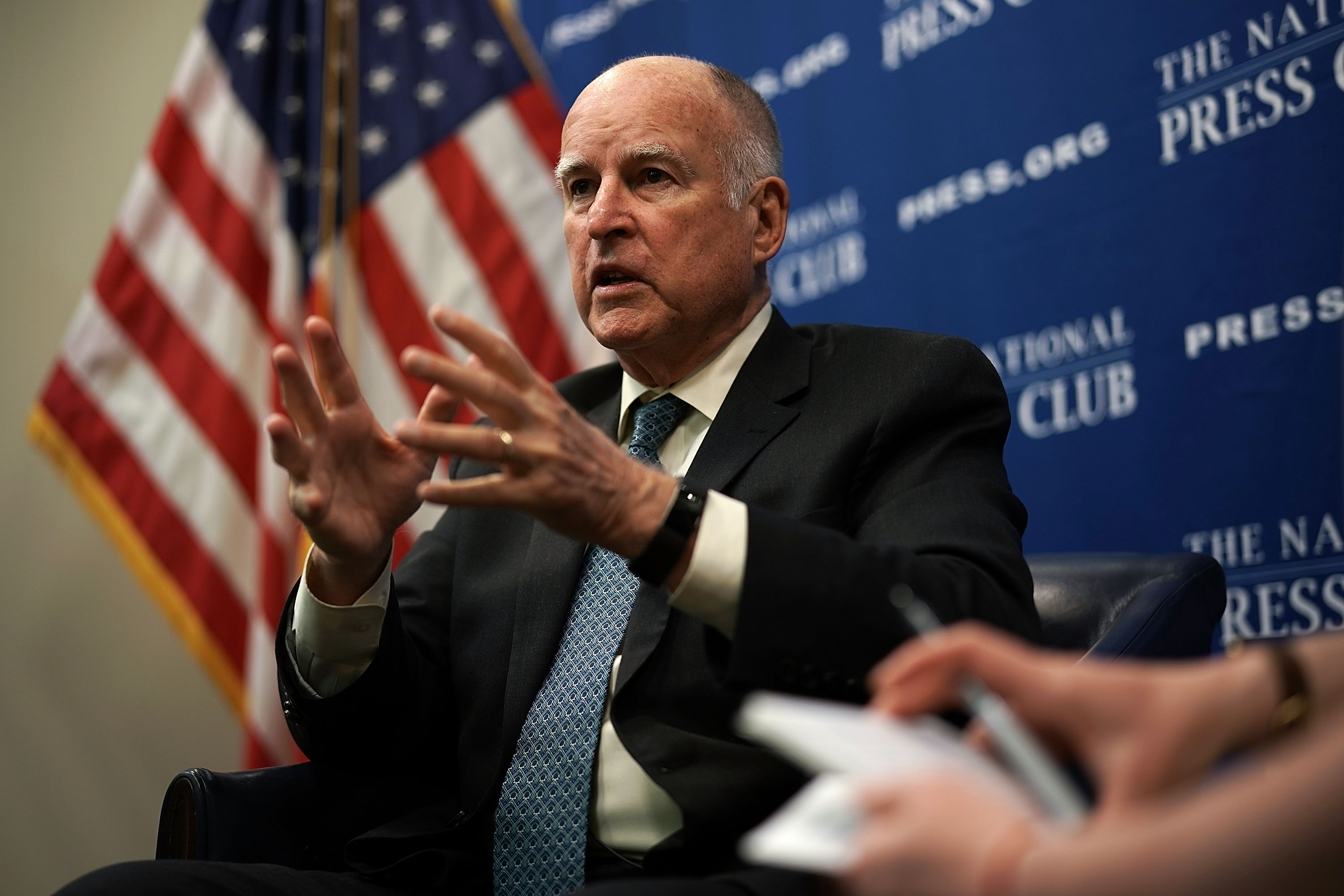California law sets up fresh legal clash over ‘net neutrality’
A “net neutrality” law signed by California Governor Jerry Brown has prompted a federal government lawsuit, setting up a clash over the authority to regulate the internet (ALEX WONG)
Washington (AFP) – The US Justice Department’s lawsuit to block a California law aimed at ensuring all online data to be treated equally sets up a legal clash over so-called “net neutrality” and the authority to regulate the internet.
California Governor Jerry Brown on Sunday signed the law that re-established net neutrality in his state, the country’s largest and home to some of the largest online firms including Facebook and Google.
Within hours, the Trump administration sued to block the law, calling it an illegal infringement over federal authority.
“Under the constitution, states do not regulate interstate commerce — the federal government does. Once again the California legislature has enacted an extreme and illegal state law attempting to frustrate federal policy,” Attorney General Jeff Sessions said in a statement announcing the lawsuit.
The moves open up a new legal clash over net neutrality rules, which have been the subject of a contentious battle for over a decade.
Net neutrality backers argue that a law is needed to guard against that broadband providers like Verizon and AT&T favoring their own services and blocking or slowing rival services like Netflix.
“This law will prevent internet service providers from unduly influencing internet traffic, thereby allowing Californians to continue to decide what content they want and when they want it, and allowing the online market to continue to flourish,” said Eric Null of the New America Foundation’s Open Technology Institute.
But critics claim restrictions will chill investment needed to ensure that new high-speed networks are built and innovative services offered.
Federal Communications Commission chairman Ajit Pai countered that the California law “hurts consumers” and infringes on federal authority.
“The law prohibits many free-data plans, which allow consumers to stream video, music, and the like exempt from any data limits,” Pai said.
“The internet is free and open today, and it will continue to be under the light-touch protections” of current federal rules.
– Long, winding road –
The FCC adopted net neutrality rules twice starting in 2009, in both cases struck down by the courts which said the agency had no authority to regulate internet firms. A third effort in 2015 withstood a court challenge when the FCC reclassified broadband firms as telecom providers.
But last year, under Trump appointee Pai, the FCC reversed course and repealed net neutrality rules, which prompted several states to began their own efforts.
Stanford University law professor Barbara van Schewick said she believes the California law will withstand the federal challenge and set a standard that will be followed in the US and around the world.
Van Schewick said in a blog post that while an FCC 2017 order explicitly bans states from adopting their own net neutrality laws, “that preemption is invalid.”
“An agency that has no power to regulate has no power to preempt the states, according to case law,” she said.
The law also marks the latest challenge between Brown’s administration and President Donald Trump’s Republicans, who have already clashed over environmental and immigration regulations.
USTelecom, which represents companies in the broadband sector, said it supports net neutrality but disagreed with the California law.
“Rather than 50 states stepping in with their own conflicting open internet solutions, we need Congress to step up with a national framework for the whole internet ecosystem and resolve this issue once and for all,” the industry group said.
Disclaimer: This story has not been edited by Siliconeer and is published from a syndicated feed. Siliconeer does not assume any liability for the above story. Validity of the above story is for 7 Days from original date of publishing. Content copyright AFP.


